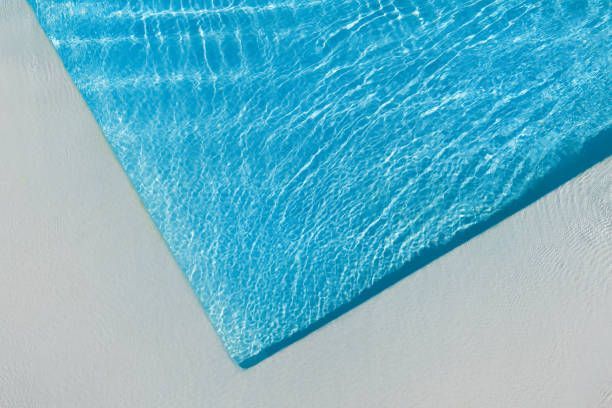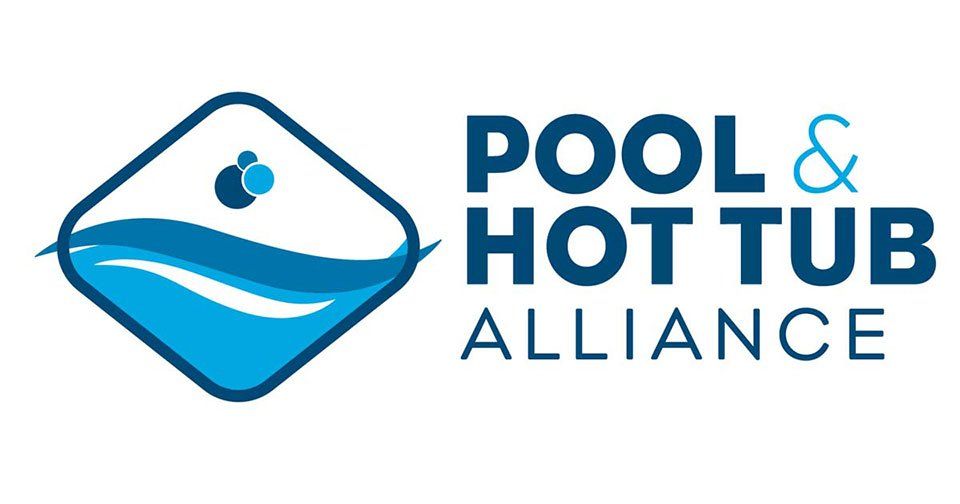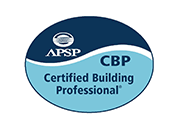When is the Best Time to Start Planning to Install a New Swimming Pool? The Answer May Surprise You!
Dean Florio • September 25, 2025
Why Fall is the Best Time to Plan Next Year’s Pool Build
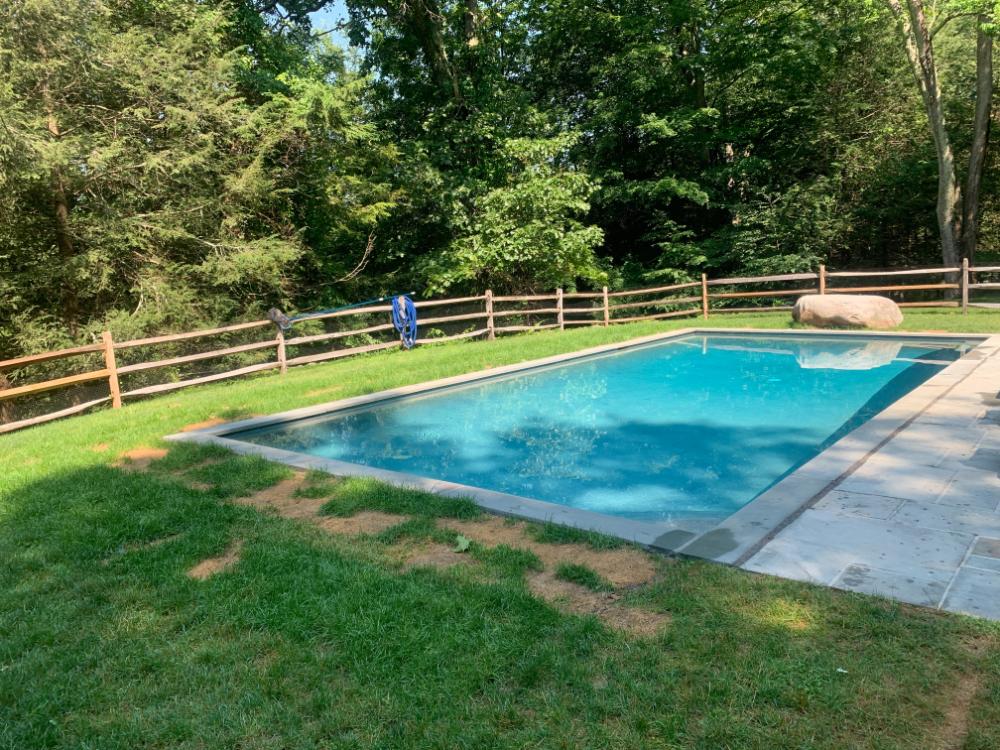
When most people think about swimming pools, they picture summer days filled with sunshine and family fun. That’s why it may seem natural to start planning a pool installation in the spring or summer. But here’s the surprise: the best time to plan your new swimming pool is actually in the fall.
At Distinctive Swimming Pools Inc., we’ve been helping Connecticut homeowners bring their dream backyards to life for decades. And time and time again, we’ve seen the benefits of starting early in the cooler months.
1. Beat the Rush
By starting your pool project in the fall, you get ahead of the seasonal demand. Spring and summer are peak pool installation times, meaning contractors book up fast. Planning in the fall ensures your project is scheduled and ready to go without long wait times.
2. More Time for Design
Building a swimming pool isn’t just about digging a hole in the ground—it’s about creating a backyard oasis. Starting in the fall gives you plenty of time to plan your layout, choose custom features, and explore finishes without the pressure of a tight timeline.
3. Lock in Better Pricing
Just like many seasonal industries, pool installation often sees price increases in the busy spring season. By locking in your project during the fall, you may secure better pricing on both materials and labor before demand drives costs up.
4. Enjoy Your Pool Sooner
Instead of starting the process in the spring and waiting months for completion, planning in the fall allows your project to kick off as soon as weather conditions permit. That way, when summer arrives, you’ll already be splashing and relaxing in your new pool.
At Distinctive Swimming Pools Inc., we specialize in custom pool design, installation, and renovations. Whether you’re dreaming of a modern lap pool, a family-friendly design, or an outdoor retreat with a hot tub, fall is the perfect time to make it happen.
📞 Ready to start planning your new pool? Call Distinctive Swimming Pools Inc.
today at (860) 868-3622
to schedule your consultation.
Here are some additional questions that we are frequently
asked in regards to new pool installations.
asked in regards to new pool installations.
Q: Can a swimming pool actually be installed in the fall or winter?
A: Depending on weather conditions, some construction may begin in the fall. However, in many cases, fall is the planning and design phase, with installation beginning in early spring for a summer-ready pool.
Q: How far in advance should I book a pool contractor?
A: Ideally, you should book 6–9 months in advance. This gives you time to secure permits, design your pool, and get on your contractor’s schedule before the busy season.
Q: Is it more expensive to build a pool in the spring or summer?
A: Often, yes. High demand for pool installations in spring and summer can drive up costs. Planning in the fall helps you avoid seasonal price increases and ensures availability with your preferred contractor.
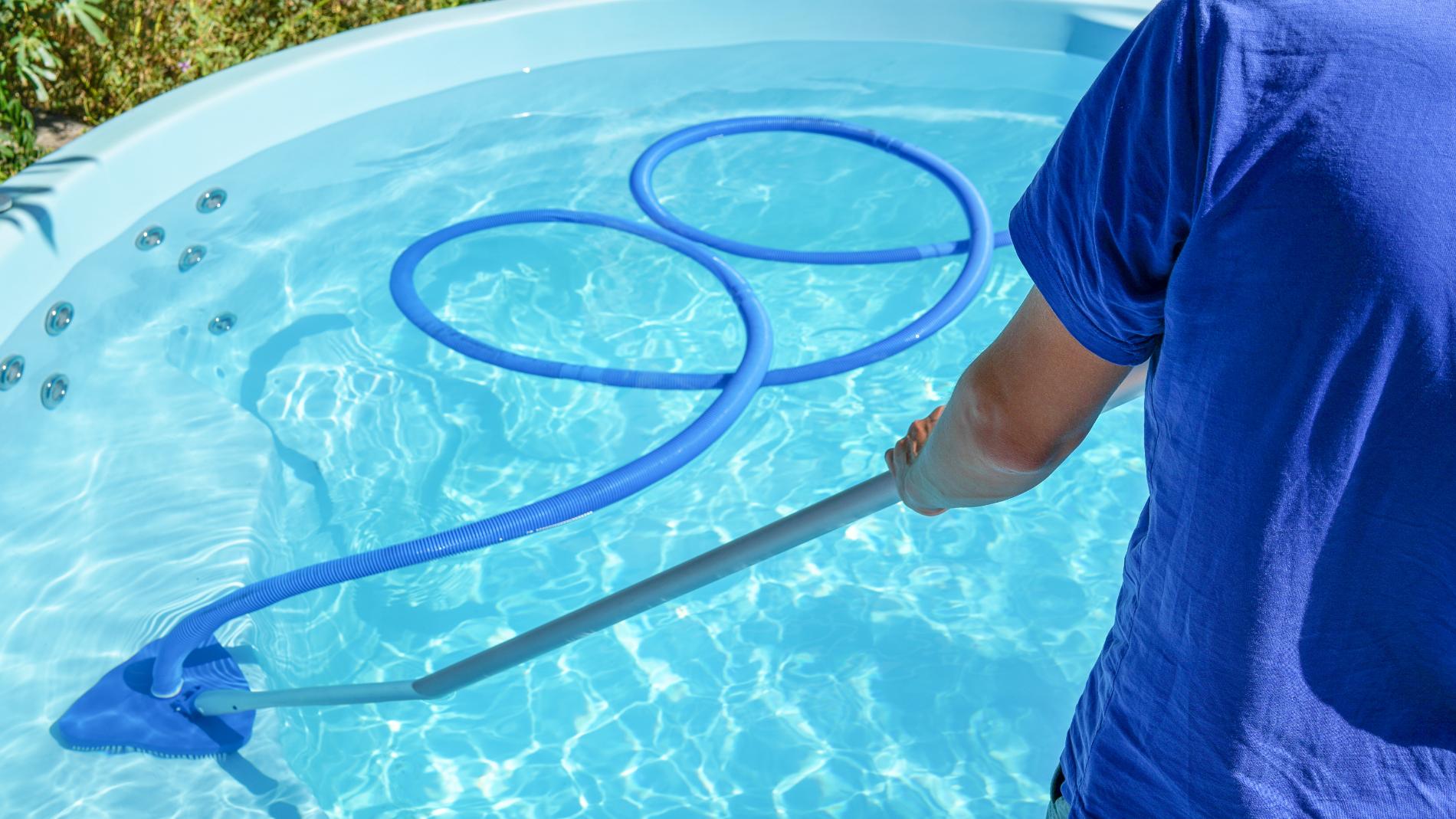
Professional pool maintenance is generally considered worth the investment because it prevents costly equipment failures, ensures precise chemical balancing for swimmer safety, and saves owners significant weekly labor. By outsourcing technical tasks like pump calibration and chemistry, owners protect their property value while enjoying a consistently clean, swim-ready environment without the stress of troubleshooting. That is the short answer. While many owners find basic skimming manageable, the technical aspects of pool ownership often require specialized knowledge. Professional service bridges the gap between basic cleanliness and long-term structural health. The Impact of Consistent Care Consistent maintenance is about more than just clear water; it is about protecting the mechanical integrity of your investment. Professional technicians monitor pressure gauges, inspect seals, and ensure that filtration systems are operating at peak efficiency. This matters because a small leak or a failing motor caught early can save thousands of dollars in emergency repairs. For many businesses and homeowners, the primary benefit is reliability. Having a scheduled expert handle pool chemicals and equipment inspections means the pool is always ready for use, regardless of weather changes or heavy bather loads. Key Components of Professional Upkeep When a professional manages a pool, they typically follow a rigorous checklist to ensure no detail is overlooked: Chemical Analysis: Precise testing of pH, alkalinity, and calcium hardness to prevent eye irritation and surface scaling. System Diagnostics: Checking the heater, pump, and salt cells to ensure energy efficiency. Debris Removal: Thorough vacuuming and scrubbing of tile lines to prevent algae blooms. Safety Inspections: Verifying that drains, covers, and lights meet current safety standards. When DIY Might Be Difficult There are specific scenarios where professional intervention is particularly valuable. For instance, after a heavy storm, phosphate levels can spike, leading to rapid algae growth that household chemicals may struggle to resolve. Similarly, opening and closing a pool for the season involves complex winterization steps that, if done incorrectly, can lead to cracked pipes or liner damage. Regional Considerations and Limits While professional service is highly effective, it is not a substitute for daily visual checks. Owners should still keep an eye on water levels and empty skimmer baskets between visits, especially during the autumn months. Additionally, professional maintenance cannot "fix" a pool with major structural failures or ancient plumbing without a separate renovation or construction plan. Expert Support in Connecticut Maintaining a pristine swimming environment requires a blend of technical skill and high-quality supplies. If you’re trying to understand the best approach for your property, help is available for both residential and commercial needs. We provide comprehensive support including new pool construction, pool renovations, swimming pool maintenance, and hot tub installation. Our teams also supply essential pool chemicals and supplies to keep your water balanced. We are proud to support pool owners throughout Litchfield County, specifically serving the communities of: New Milford, CT Woodbury, CT Kent, CT Watertown, CT Morris, CT Washington Depot, CT New Preston, CT The key thing to understand is that your pool is a significant asset. Taking steps to preserve it today ensures years of enjoyment. You are invited to call and ask about our pool maintenance packages by contacting Distinctive Swimming Pools Inc at (860) 868-3622 . Here are some more questions we're frequently asked about professional pool maintenance. Q: How often should a professional service my pool? A: Most experts recommend weekly or bi-weekly visits to maintain chemical stability and prevent equipment wear. Q: Can professional maintenance lower my energy bills? A: Yes. By ensuring filters are clean and pumps are running efficiently, professional service can reduce the electricity required to circulate water. Q: What is the difference between residential and commercial pool care? A: Commercial pools often face stricter health department regulations and higher bather loads, requiring more frequent testing and specialized documentation. Q: Does professional maintenance include the cost of chemicals? A: Many service packages include basic chemicals, though specific treatments for algae or mineral buildup may be billed separately. Reference Context: Editorial Note: This article is based on industry best practices for swimming pool longevity and safety. For specific technical requirements, consult your equipment manufacturer's documentation or local health department codes.
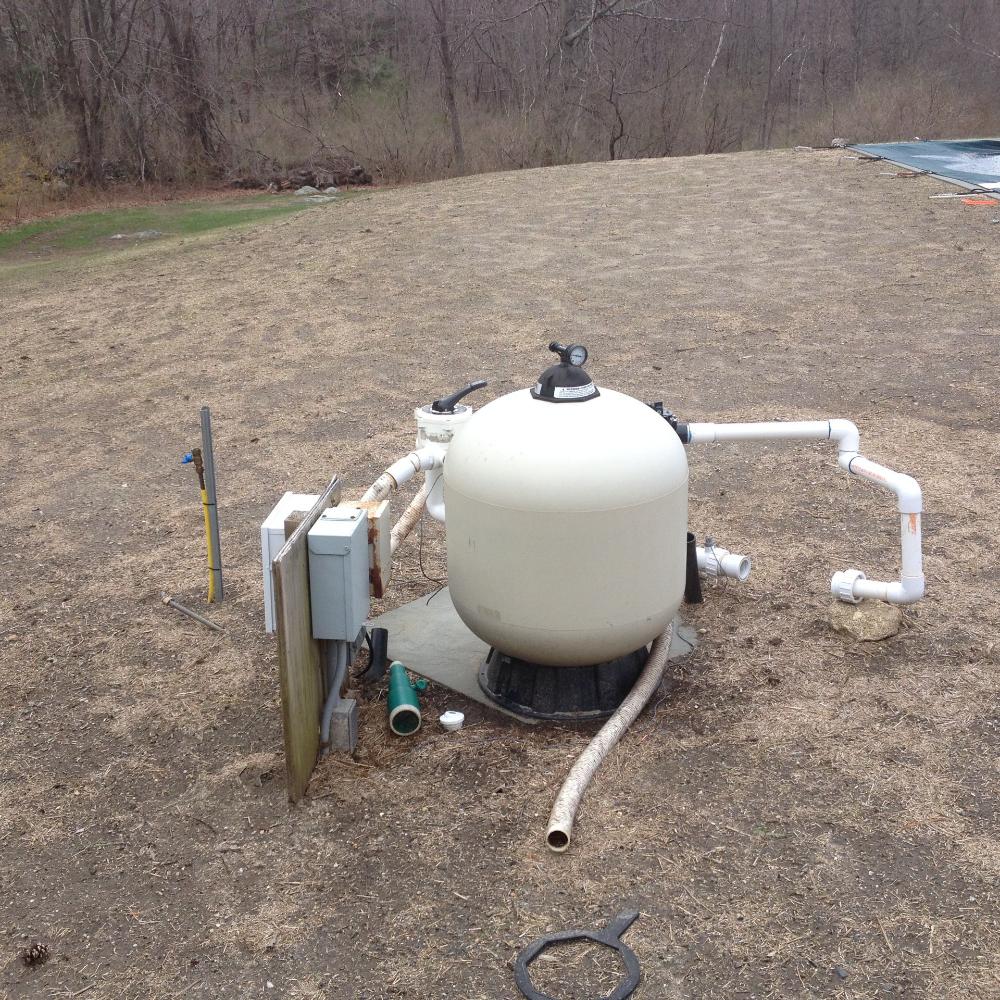
If you’re looking to enjoy a beautiful backyard pool while keeping energy costs under control, there are several options for energy-efficient pool equipment that can make a real difference. From variable-speed pumps to energy-saving heaters and LED lighting, investing in modern, eco-friendly equipment helps reduce your energy consumption and keeps your pool in perfect condition. At Distinctive Swimming Pools, Inc ., serving homeowners in Litchfield and Fairfield Counties, including Torrington, Waterbury, Danbury, Stamford, and Bridgeport, we provide expert guidance on selecting and installing energy-efficient pool equipment. Whether you’re planning a new pool installation, upgrading an existing system, or looking for maintenance and repairs, we have solutions that fit your needs. Our retail store also carries high-quality pool supplies, toys, and replacement parts to keep your pool running efficiently. Energy-Efficient Pool Equipment Options Variable-Speed Pool Pumps – These pumps adjust their speed based on your pool’s needs, reducing electricity use by up to 90% compared to traditional single-speed pumps. High-Efficiency Pool Heaters – Gas or electric heaters with modern energy-efficient technology maintain your pool’s temperature without wasting energy. Solar Pool Heating Systems – Harness the sun’s energy to naturally warm your pool while cutting energy bills significantly. LED Pool Lighting – LED lights use a fraction of the electricity of traditional incandescent lights and last longer, saving money over time. Automation and Smart Controls – Automated systems let you schedule pump and heater operation, minimizing unnecessary energy use. By upgrading to energy-efficient equipment, you not only reduce your monthly energy costs but also extend the life of your pool systems and contribute to a greener environment. 📞 Call Distinctive Swimming Pools, Inc. today at (860) 868-3622 to learn more about energy-efficient pool upgrades for your home in Litchfield and Fairfield Counties. Here are some FAQs About Energy-Efficient Pool Equipment Q: How much can I save with a variable-speed pump? A: Homeowners can save up to 70–90% on pool pump electricity costs compared to traditional single-speed pumps, depending on usage. Q: Are energy-efficient pool heaters more expensive upfront? A: They may have a higher initial cost, but the long-term energy savings and potential rebates often offset the price within a few years. Q: Can I install solar pool heating in Connecticut? A: Absolutely! Solar heating systems are effective even in Connecticut’s climate and can significantly reduce your reliance on gas or electric heaters. Q: Do LED pool lights work with existing fixtures? A: In most cases, LED lights can replace traditional bulbs, but our experts can assess your system to ensure compatibility and optimal performance. Q: How often should I service my energy-efficient equipment? A: Regular maintenance, including pump inspections, filter cleaning, and heater checks, helps maintain efficiency and prevent costly repairs.
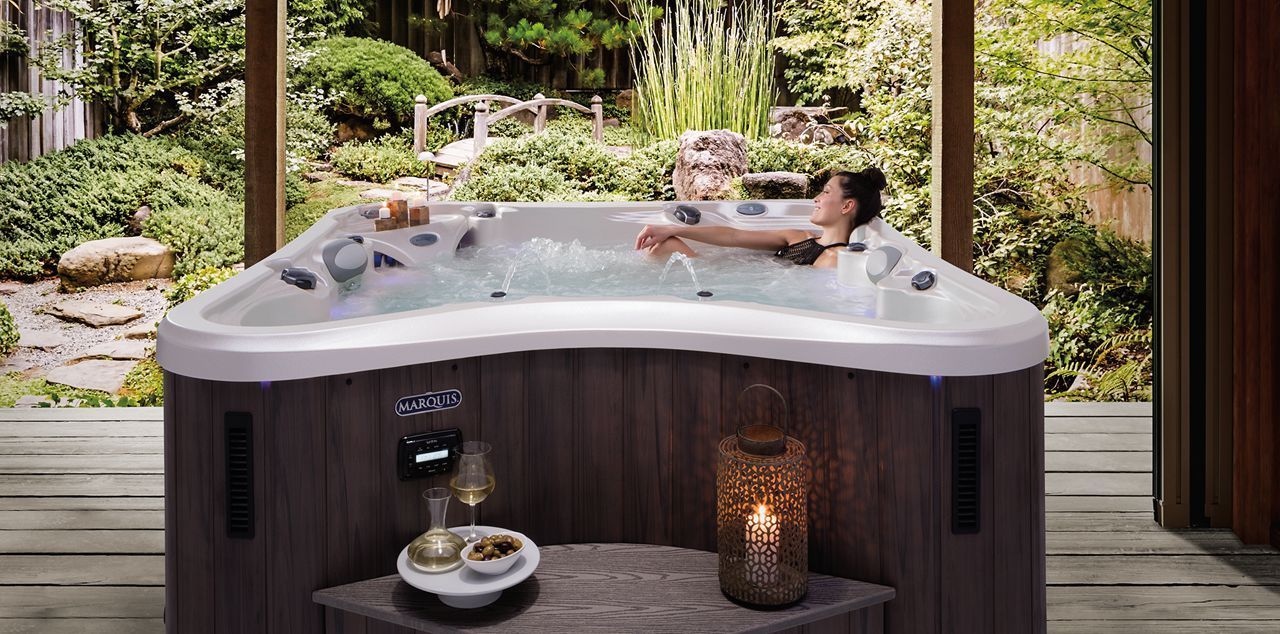
Most homeowners spend between 25 and 60 dollars per month to run a hot tub, depending on electricity rates, usage habits, and insulation quality. A typical hot tub uses about as much electricity as a large household appliance. Your exact monthly cost depends on how often you use the tub, the efficiency of the heater and pump, and the outdoor climate. In Connecticut, where temperatures drop in winter, your hot tub may require more energy during colder months. What Affects Monthly Hot Tub Costs A few key factors determine your real monthly spending. 1. Electricity Rates in Your Area Connecticut power rates are higher than the national average, which increases the operating cost. If your hot tub uses 150 to 300 kilowatt hours per month, that directly affects your utility bill. 2. Water Temperature and Weather Cold weather forces the heater to work harder. For homes in Fairfield County, Litchfield County, Washington Depot, and surrounding Connecticut communities, winter temperatures can noticeably raise monthly operating costs. 3. Hot Tub Insulation Quality Better insulation means less heat loss. Poorly insulated tubs require more energy to stay at your preferred temperature. 4. Pump and Filtration Cycles Pumps that run longer increase electricity use. Modern energy efficient models reduce overall consumption. 5. How Often You Use the Tub Lifting the cover, running jets, and reheating after long sessions all add to monthly costs. Typical Monthly Cost Breakdown Here is a simple view of where your money goes each month. Electricity to heat and maintain water temperature, usually the largest cost Pump and jet operation Water, chemicals, and supplies Occasional filter replacements Most Connecticut homeowners fall in the 25 to 60 dollar per month range for electricity, plus 10 to 20 dollars for water care products. Ways to Reduce Your Monthly Hot Tub Costs Small changes make a noticeable difference. Keep the cover on when not in use Upgrade to a high quality insulated cover Lower the set temperature by a few degrees Schedule filtration cycles during off peak electricity hours Maintain clean filters so the system runs efficiently Local Insight for Connecticut Homes Homes in Fairfield County, Litchfield County, Washington Depot, and surrounding areas often experience seasonal swings in hot tub energy use. Winter heating demands increase costs, while well insulated tubs can stay efficient even during colder months. Local climate and energy rates make proper installation and regular maintenance especially important. How Our Services Support Lower Operating Costs At Distinctive Swimming Pools Inc , our team helps you get the most from your hot tub and pool systems. We provide: Hot tub installation designed for long term efficiency Pool maintenance to keep systems running smoothly A full retail store with pool and hot tub supplies for ongoing care Professional installation and routine maintenance ensure pumps, heaters, and filters run efficiently so you spend less each month. Conclusion Running a hot tub typically costs 25 to 60 dollars per month, with variations based on usage, weather, and equipment efficiency. With proper care and high quality installation, you can enjoy your spa year round without overspending. Ready for expert hot tub guidance or professional installation? Contact Distinctive Swimming Pools Inc at (860) 868 3622 . Here are some other questions we're frequently asked about hot tubs and spas: Q: How much do chemicals cost each month for a hot tub? A: Most hot tub owners spend about 10 to 20 dollars per month on chemicals and water care supplies. Q: Does leaving a hot tub on all the time cost more? A: Keeping it on is usually more efficient because maintaining heat uses less energy than reheating a cold tub. Q: Do energy efficient hot tubs really save money? A: Yes. Modern models offer better insulation, smarter pumps, and improved heaters that reduce monthly utility costs. Q: How often should I change the water? A: Most homeowners change hot tub water every three to four months, depending on usage. Q: Will a better cover reduce hot tub costs? A: A well insulated cover reduces heat loss, which can significantly cut your monthly energy use.
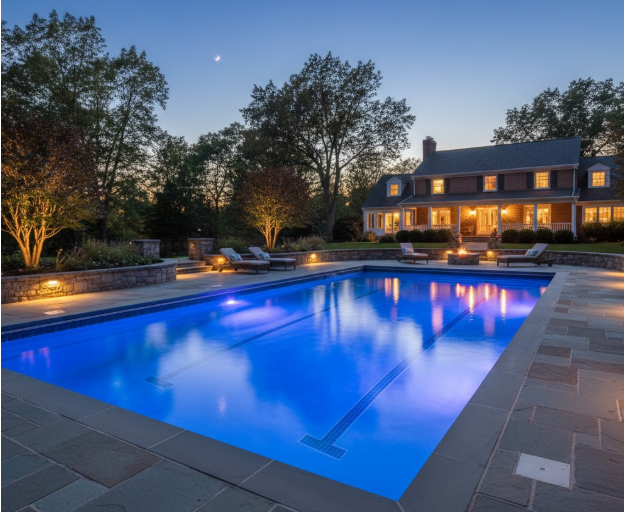
If your pool has been around for a while, you might be wondering if it’s possible to bring it up to date with the latest technology and design trends. The good news? You don’t need a complete remodel to make a big impact. With today’s innovations, upgrading your existing pool with features like LED lighting, automation, and energy-efficient equipment is easier than ever. Modern Pool Upgrades That Make a Difference 1. LED Pool Lighting Swap out old halogen lights for bright, colorful LEDs. These lights use less energy, last longer, and let you customize your pool’s look with a range of color options. You can even set the mood for nighttime swimming or parties with lighting that changes at the touch of a button. 2. Pool Automation Systems Imagine controlling your pool from your smartphone. Modern automation systems allow you to manage pumps, lights, heaters, and even water features remotely. You can set schedules, adjust temperatures, and check chemical levels without ever stepping outside. It’s convenience and efficiency combined. 3. Energy-Efficient Equipment If your pool pump or heater is more than 10 years old, upgrading to energy-efficient models can lower your utility bills and improve performance. Variable-speed pumps and modern heaters are quieter, more reliable, and better for the environment. 4. Water Features and Finishes Add a touch of luxury with new tile, resurfacing, or water features like fountains or waterfalls. These updates not only enhance the look of your pool but can also increase your home’s value and appeal. Ready to Modernize Your Pool? Distinctive Swimming Pools, Inc can help you update your existing pool with smart, efficient, and stylish features that make every swim better. Our team will guide you through your options and handle the installation from start to finish. 📞 Call us today at (860) 868-3622 to schedule your consultation. Here are a few other questions we're frequently asked: Q: Can I upgrade my pool without draining it? A: In some cases, yes. Certain upgrades, like automation systems or lighting, can be added without fully draining your pool. However, for resurfacing or major repairs, it’s often necessary to drain it first. Q: Will upgrading my pool increase my energy costs? A: Quite the opposite! Modern LED lights and energy-efficient pumps actually use less electricity, helping you save money over time. Q: How long does a typical pool upgrade take? A: Most upgrades, like installing lighting or automation systems, can be completed in just a few days. Larger projects involving resurfacing or new water features may take a bit longer depending on the scope of work.
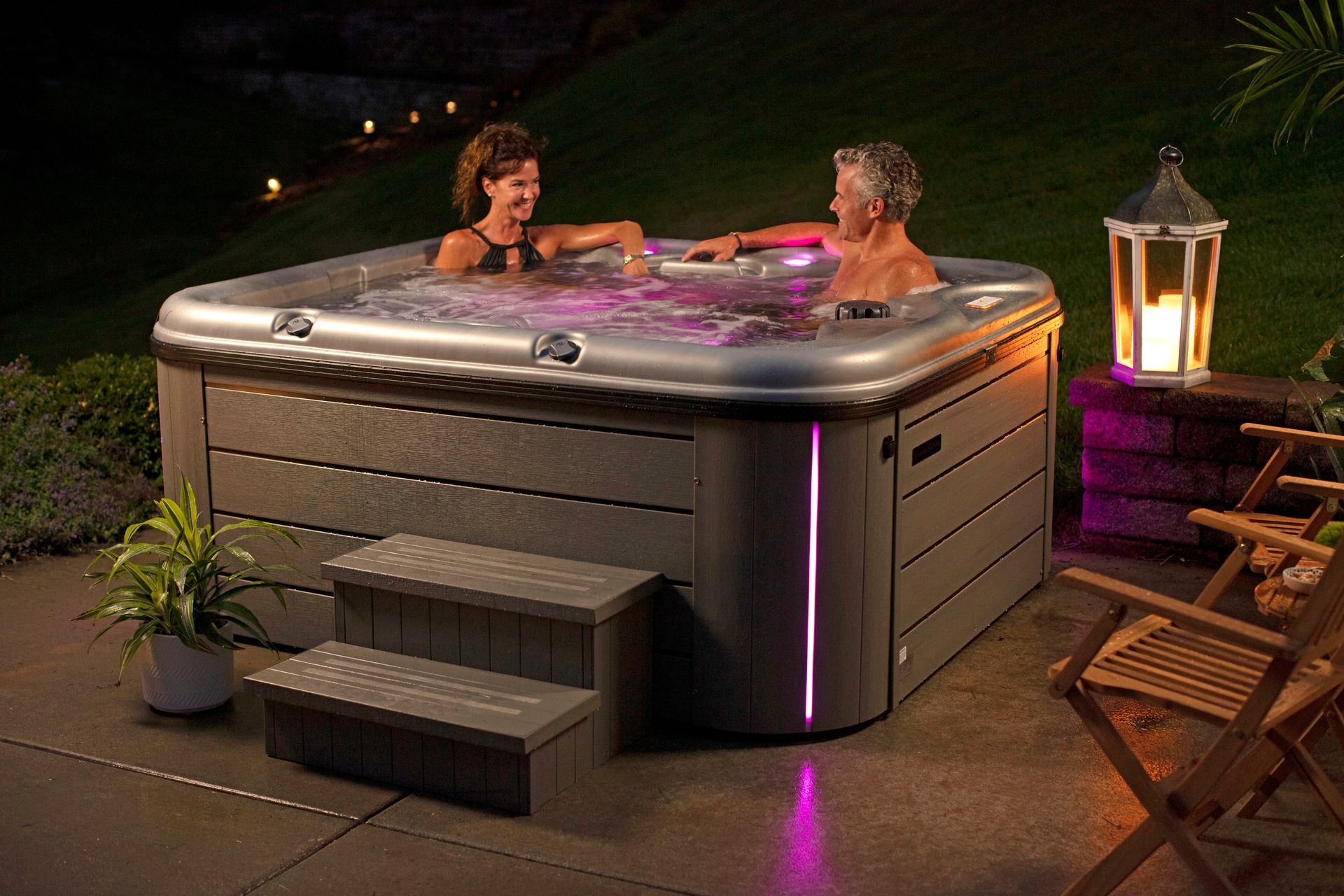
When most people think about hot tubs, they picture luxury, bubbles, and relaxation after a long day. But did you know that hot tubs can also help improve your health? Hydrotherapy, which is the use of warm water to relieve pain and promote healing, has been around for centuries. Today, modern hot tubs make it easy to enjoy those same benefits right at home. 1. Relieve Stress and Tension Warm water and soothing jets help calm the body and mind. The gentle pressure of the water eases tight muscles and releases tension, helping you unwind. Just 15 to 20 minutes in a hot tub can lower stress hormones, improve your mood, and even help you sleep better at night. 2. Ease Muscle and Joint Pain Hydrotherapy is great for anyone dealing with sore muscles, joint stiffness, or chronic pain. The buoyancy of the water takes pressure off your joints, while the heat increases blood flow and promotes faster healing. Whether you’re recovering from a workout or dealing with arthritis, a hot tub can provide natural pain relief. 3. Improve Circulation and Heart Health Sitting in warm water raises your body temperature slightly, which helps improve circulation. Better blood flow brings more oxygen to your muscles and tissues, which helps with recovery and overall health. Some studies even suggest that regular hot tub use can help support a healthy heart by lowering blood pressure and improving vascular function. 4. Boost Sleep Quality If you have trouble falling asleep, a soak before bed might help. When you step out of the warm water, your body temperature naturally drops, signaling to your brain that it’s time to rest. This simple routine can lead to deeper, more restful sleep. 5. Encourage Relaxation and Connection A hot tub isn’t just for personal health. It’s also a great place to spend time with family and friends. Sharing that space helps you disconnect from screens and stress, encouraging conversation, laughter, and relaxation. At Distinctive Swimming Pools Inc , we proudly sell and install Nordic and Marquis spas, known for their quality, comfort, and performance. Whether you’re looking to ease muscle pain, reduce stress, or simply create a peaceful escape at home, a new hot tub can make a big difference in your life. Call us today at (860) 868-3622 to learn more or schedule your installation. Here are some frequently asked questions that we usually get about spas and hot tubs: Q: How often should I use my hot tub for health benefits? A: Most people find that using their hot tub three to four times a week for about 20 minutes helps them feel more relaxed and refreshed. Always listen to your body and adjust as needed. Q: Are there health conditions that make hot tub use unsafe? A: People with heart conditions, diabetes, or high blood pressure should check with their doctor before using a hot tub. Pregnant women should also consult their physician. Q: What makes Nordic and Marquis spas special? A: Nordic and Marquis spas are known for their energy efficiency, strong jet systems, and durable construction. They’re designed to provide superior hydrotherapy while being easy to maintain and beautiful to look at.
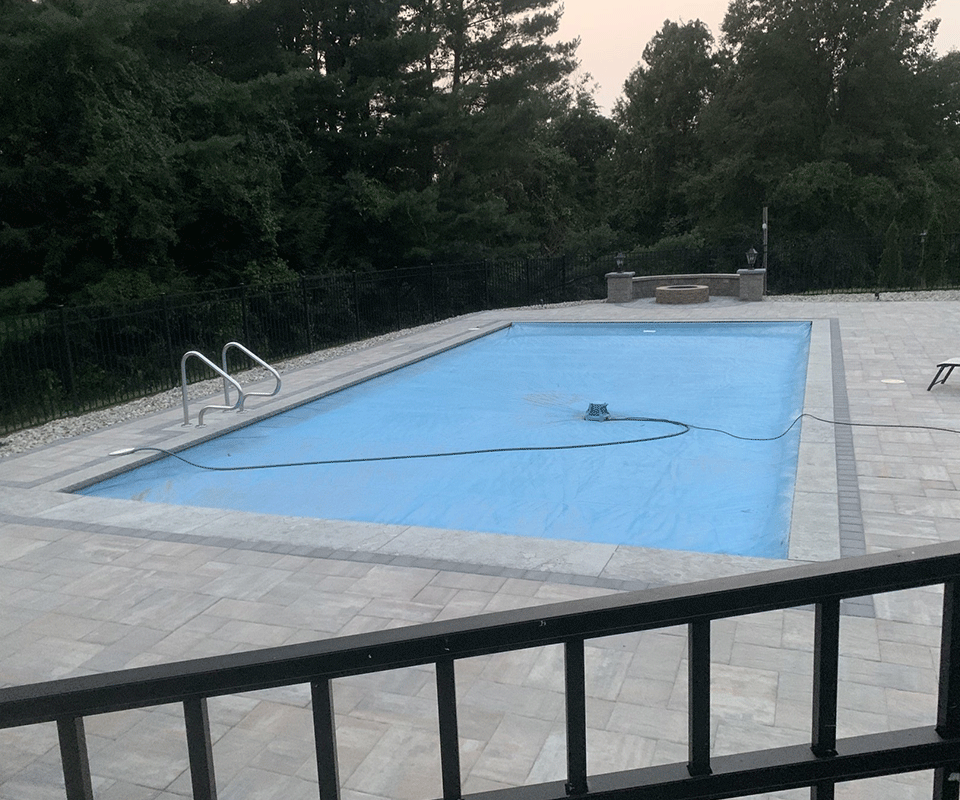
When winter arrives in Connecticut, many pool owners believe their swimming pools can be left alone until spring. But here’s the truth: neglecting your pool during the off-season can lead to ugly pool stains, scale buildup, and costly repairs once warmer weather returns. At Distinctive Swimming Pools Inc. , we know the key to enjoying a clean, beautiful pool year after year is proactive winter maintenance. If you’ve ever asked yourself, “How do I prevent stains and scale from forming in my pool during the winter?” — this article breaks down the best practices and expert tips to protect your investment. 1. Balance Your Pool Chemistry Before Closing The number one reason stains and scale form in pools over the winter is unbalanced water chemistry. Make sure your pool’s: pH is between 7.2 – 7.6 Alkalinity is 80 – 120 ppm Calcium hardness is around 200 – 400 ppm This balance prevents metals from staining your pool walls and stops calcium deposits (scale) from forming on surfaces and equipment. 2. Use a Quality Metal Sequestrant Even perfectly balanced water can still contain trace metals like iron, copper, or manganese. If left untreated, these metals oxidize and leave behind brown, green, or black stains. Adding a metal sequestrant before covering your pool binds these metals, keeping them from discoloring your pool surfaces. 3. Shock & Circulate Before Closing Always shock your pool before shutting it down for the season. This destroys organics, bacteria, and algae spores that could create stains or cause water quality issues. Make sure you run your pump for at least 24 hours to fully circulate chemicals before covering. 4. Brush and Clean Thoroughly Don’t underestimate the power of a good scrub. Brushing your walls and floor prevents organic debris and mineral deposits from bonding to pool surfaces. Vacuum and remove leaves or debris that could settle, stain, or cause algae growth during the colder months. 5. Choose the Right Winter Pool Cover A high-quality, tight-fitting winter pool cover is essential. It keeps out leaves, dirt, and contaminants that contribute to staining and scale. Safety covers are best for keeping debris out while protecting your pool from harsh winter elements. 6. Consider Professional Winterization Services DIY pool closing is possible, but improper techniques often lead to stains, scale, and expensive damage by spring. At Distinctive Swimming Pools Inc. , our professional winterization services ensure your water is chemically balanced, your equipment is protected, and your pool is fully prepped to handle Connecticut winters. 📞 Protect your pool all year long — call Distinctive Swimming Pools Inc. today at (860) 868-3622 for expert winterization and pool care services. Here are some other questions we frequently get about preventing pool stains & scale in winter: Q: Why do pool stains appear in the winter if no one is using the pool? A: Pool stains occur when metals oxidize or when organic debris sits too long on pool surfaces. Even during winter, untreated or unbalanced water continues to interact with your pool, leading to discoloration. Q: How can I stop scale buildup on my pool tile and walls? A: The best way to prevent scale is to maintain proper calcium hardness levels and keep your pool water balanced. Using a scale inhibitor or scheduling professional maintenance also reduces the risk of buildup. Q: Is professional winterization really necessary? A: While some pool owners attempt to close their pool themselves, professional winterization ensures chemistry, equipment, and coverings are done correctly — saving you money by preventing stains, scale, and even structural damage.
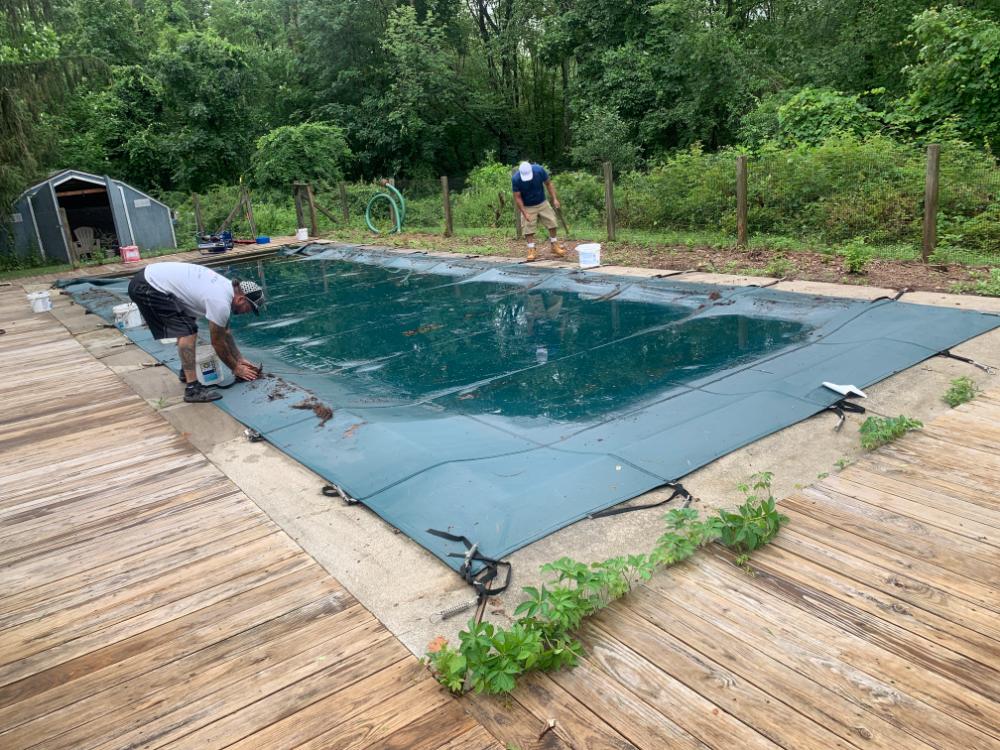
As cooler weather sets in across Connecticut, pool owners know it’s time to start thinking about winterization. Properly closing your pool before the freezing temperatures hit isn’t just about convenience—it protects your investment, prevents costly damage, and ensures an easier opening in the spring. At Distinctive Swimming Pools Inc., we’ve been helping homeowners across Washington Depot, New Milford, Woodbury, and the surrounding areas get their pools winter-ready for years. Here’s a step-by-step look at how to prepare your pool for the Connecticut winter. Step 1: Balance Your Water Chemistry Before closing your pool, test the water and make sure your pH, alkalinity, and calcium hardness are in the proper ranges. Balanced water prevents corrosion, scaling, and liner damage during the off-season. Step 2: Shock and Treat the Water Adding a pool shock treatment and algaecide helps sanitize your water and prevent algae growth under the cover. This step is crucial to avoid cloudy, green water when it’s time to reopen. Step 3: Clean and Remove Debris Thoroughly vacuum and skim your pool to remove leaves, dirt, and debris. Leaving organic material behind can lead to staining, algae, and other headaches come spring. Step 4: Lower the Water Level In Connecticut, where freezing is guaranteed, you’ll want to lower your water level to prevent damage to your skimmer and plumbing. Your pool type (vinyl, fiberglass, or gunite) will determine the exact level. Step 5: Drain and Protect Equipment Remove water from pumps, filters, heaters, and plumbing lines. Use a shop vac or air compressor to blow out the lines, then add winter plugs. Skipping this step risks cracked pipes and expensive repairs. Step 6: Install Your Winter Cover Finally, secure a durable winter pool cover or safety cover. This keeps out debris, prevents accidental entry, and adds an extra layer of protection against winter damage. Need Professional Help Closing Your Pool? Winterizing a pool can be time-consuming and requires the right equipment. Let the experts at Distinctive Swimming Pools Inc. handle it for you so you can have peace of mind all season long. 📞 Call us today at (860) 868-0811 to schedule your professional pool closing. Here are some other pool closing related questions we are frequently asked: 1. When should I winterize my pool in Connecticut? You should close your pool once the water temperature consistently drops below 65°F. This prevents algae growth and ensures your pool is ready before freezing weather sets in. 2. Do I need to add antifreeze to my pool lines? Yes—many Connecticut pool owners use pool-safe antifreeze in the plumbing lines as an extra layer of protection against freezing and cracks, especially in inground pools. 3. What happens if I don’t winterize my pool properly? Skipping steps or closing incorrectly can result in cracked pipes, damaged equipment, liner issues, and expensive spring cleanup. Proper winterization saves money and protects your pool investment.
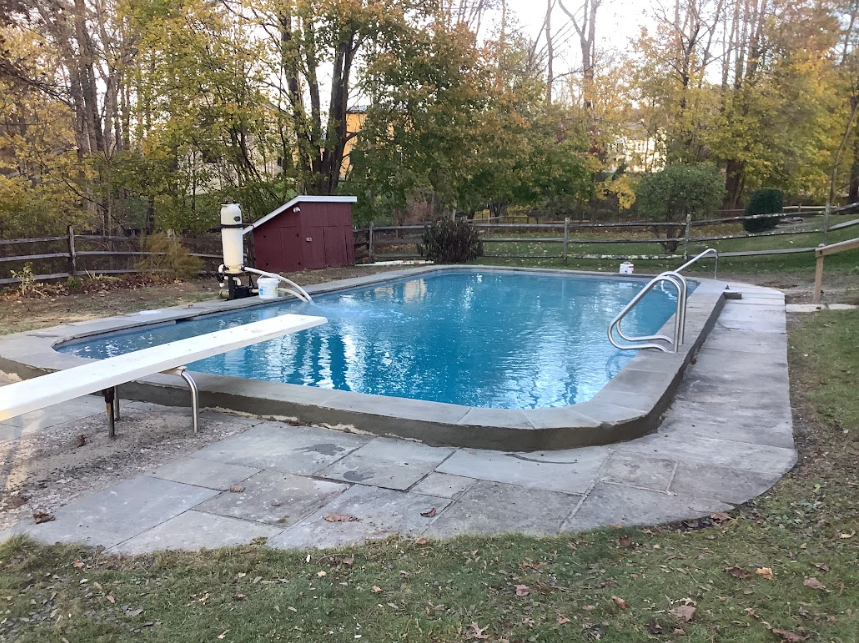
At Distinctive Swimming Pools, Inc. , we know that choosing the right type of pool system is a big decision—one that impacts your comfort, maintenance routine, and even your long-term investment. Two of the most common options are saltwater and chlorine pools. While both keep your water clean and safe, they offer very different experiences. So which is right for you? Let’s dive into the details and find out! What Is a Saltwater Pool? Contrary to popular belief, saltwater pools do contain chlorine—but it’s generated from salt through a process called electrolysis. This system creates a softer, more natural swimming experience without the need to manually add chlorine. Benefits of Saltwater Pools: Gentler on Skin & Eyes – Say goodbye to itchy skin and red eyes. Lower Maintenance – Fewer chemical additions and a more consistent chlorine level. Cost-Effective Over Time – While the upfront cost is higher, operating costs are lower in the long run. Considerations: Higher Initial Cost – Saltwater systems cost more to install. Corrosion Risk – Salt can damage certain pool components if not properly maintained. System Repairs – Salt generators may require more technical repairs. What Is a Chlorine Pool? Chlorine pools use manually added chlorine tablets or liquid to sanitize the water. This traditional method is tried and true, and it's still widely popular. Benefits of Chlorine Pools: Lower Upfront Cost – More budget-friendly to install. Familiarity – Most pool professionals and homeowners are already comfortable managing chlorine pools. Effective Sanitization – Quickly kills bacteria and algae. Considerations: More Frequent Maintenance – Requires regular monitoring and chemical adjustments. Harsher on Skin – Some swimmers experience irritation. Stronger Odor – Chlorine can produce a distinct “pool smell.” Which Pool System Is Right for You? Choosing between a saltwater and chlorine pool depends on your lifestyle, budget, and personal preferences. Here are some quick questions to help you decide: Do you have sensitive skin or allergies? → Consider saltwater. Is your budget limited to a lower upfront cost? → Chlorine might be your best bet. Do you want a lower-maintenance experience? → Saltwater offers more automation. Are you familiar with traditional pool care? → Chlorine may feel more manageable. At Distinctive Swimming Pools, Inc. , we install and service both saltwater and chlorine systems, and we’re happy to walk you through your options so you can make the best choice for your property. Let’s Build Your Dream Pool Whether you’re upgrading your current pool or starting from scratch, we’re here to help you choose the system that fits your needs and lifestyle. Call Distinctive Swimming Pools, Inc. today at (860) 868-3622 to schedule a consultation and take the next step toward your perfect pool!
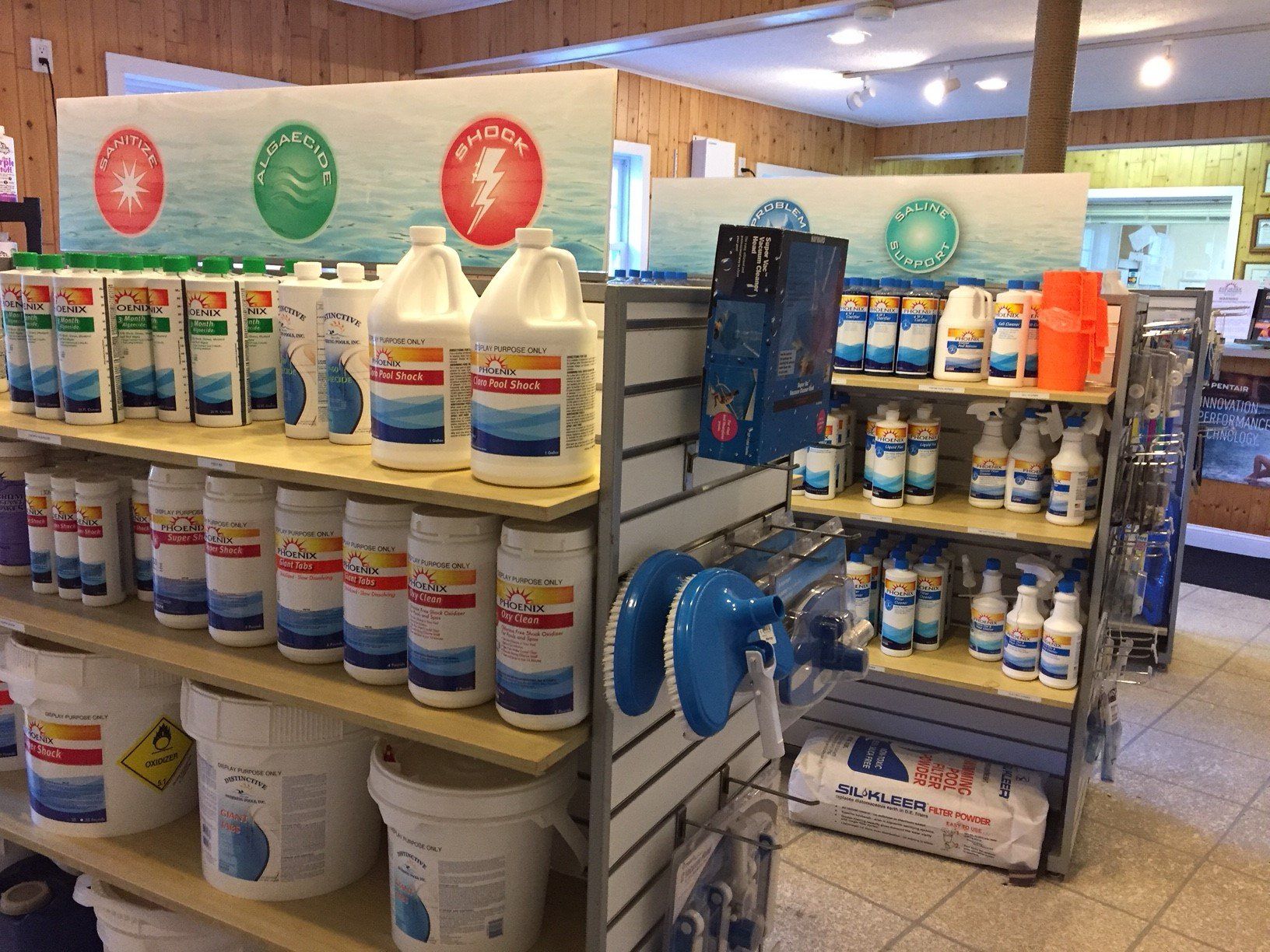
If you're a pool owner, you've likely heard the term "shocking your pool." But how often should you do it? Understanding the importance and timing of pool shocking can be the difference between a crystal-clear backyard oasis and a murky mess. What Is Pool Shocking? Shocking your pool means adding a high dose of chlorine or other chemical sanitizers to eliminate bacteria, algae, and other organic contaminants. It’s an essential step in regular pool maintenance that helps keep your water safe and pleasant to swim in. Why Shocking Matters Over time, organic matter like sweat, body oils, sunscreen, leaves, and even rain can introduce contaminants to your pool. These contaminants can bind with your regular chlorine, making it less effective. Shocking breaks down these combined chlorine compounds (chloramines) and restores sanitizer effectiveness. How Often Should You Shock Your Pool? The frequency of shocking depends on several factors, including usage, weather, and water conditions. Here are some general guidelines: Weekly During Peak Season: During the summer when your pool is used most frequently, it’s a good idea to shock your pool once a week. After Heavy Usage: If you’ve had a pool party or a large number of swimmers, shock the pool to eliminate increased contaminants. After a Rainstorm: Rainwater can introduce contaminants and dilute your pool’s chemical balance. A post-storm shock helps restore equilibrium. When You See Algae or Cloudiness: Any signs of algae growth or cloudy water indicate a need for immediate shocking. At Opening and Closing: Shock your pool at the start and end of each swimming season to ensure a clean transition. Tips for Effective Pool Shocking Shock at Dusk or Night: Sunlight breaks down chlorine, so shocking in the evening ensures the chemicals work overnight. Test Your Water First: Always check your water chemistry before shocking so you know the right amount to add. Use the Right Shock Product: Not all shocks are created equal—consult a pool professional to choose the best product for your pool type and needs. Stop by Our Retail Store for Help and Supplies! Need pool shock or advice on how to keep your water in top shape? Visit Distinctive Swimming Pools Inc. at our retail location in Washington Depot, CT. Our team is happy to guide you to the right products and walk you through the process. Stop in or call us at (860) 868-3622 — we're here to help you enjoy a cleaner, safer pool all season long!

